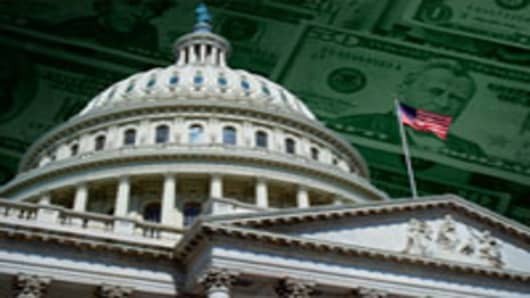Now that the debt ceiling deal seems to be contingent on some kind of balanced budget amendment getting through the House and the Senate, it worth reminding lawmakers that the balanced budget amendment is really not a very good idea.
As Murray Rothbard pointed out, the "amendment mongers" don't seem to realize that the same political process that creates deficit spending will inevitably overcome any paper prohibition against deficits.
Here's Rothbard writing on the budget back in the 1980s.
The major defect is that they only require a balance of the future estimated budget, and not of the actual budget at the end of a given fiscal year. As we all should know by this time, economists and politicians are expert at submitting glittering projected future budgets that have only the foggiest relation to the actual reality of the future year. It will be duck soup for Congress to estimate a future balance; not so easy, however, to actually balance it. At the very least, any amendment should require the actual balancing of the budget at the end of each particular year.
Second, balancing the budget by increasing taxes is like curing influenza by shooting the patient; the cure is worse than the disease.
Dimly recognizing this fact, most of the amendment proposals include a clause to limit federal taxation. But unfortunately, they do so by imposing a limit on revenues as a percentage of the national income or gross national product. It is absurd to include such a concept as "national income" in the fundamental law of the land; there is no such real entity, but only a statistical artifact, and an artifact that can and does wobble according to the political breeze. It is all too easy to include or exclude an enormous amount from this concept.
A third flaw highlights again the problem of treating "the budget" as a constitutional entity. As a means of making the deficit look less bleak, there has been an increasing tendency for the government to spend money on "off- budget" items that simply don't get included in official expenses, and therefore don't get added to the deficit. Any balanced-budget amendment would provide a field day for this kind of mass trickery on the American public.
Questions? Comments? Email us atNetNet@cnbc.com
Follow John on Twitter @ twitter.com/Carney
Follow NetNet on Twitter @ twitter.com/CNBCnetnet
Facebook us @ www.facebook.com/NetNetCNBC



